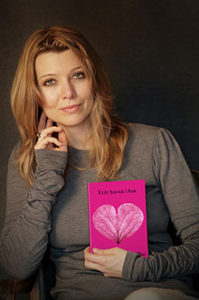
Thankfulness
(Shazia Dar)
I have been reading Forty Rules of love by Elif Shafak. The book reveals Rumi’s love for his master Shamas Tabrezi and also inspires the reader to enter into the realm of love to enjoy the beauty of love. The following line captured my attention and let me think and research:
“Whatever happens in your life, no matter how troubling things might seem, do not enter the neighborhood of despair. Even when all doors remain closed, God will open up a new path only for you. Be thankful!”

Everyone of us passes through the bitter times in life. During these times, our faith, courage and patience have been put to test. But many of us usually lose hope, faith and courage in trials. However, few people take trial as a challenge or wakeup call for next turn in life. Such people remain thankful in these bitter times even, but the majority cannot maintain it.
They blame the real master for the trial time and in this way they lose trust and hope. They became thankless even for all the blessings they have. “Be thankful” is the phrase which instigated me to find out more relevant clues which I am going to share with you. The following words have been taken from the Gospel of Matthew in the Holy Scriptures:
“Whoever has gratitude will be given more, and he or she will have abundance. Whoever does not have gratitude, even what he or she has will be taken from him or her.”
About two thousand years ago these words were recorded, but they are as true today as they ever were: if you don’t take the time to be thankful; you will never have more, and what you do have you will lose. From the Koran the promise of gratitude is equally emphatic:
“And (remember) when God proclaimed: ‘If you are grateful I will give you more; but if you are ungrateful verily my punishment is indeed severe.’”
It doesn’t matter what religion you follow, or whether you’re religious or not, these words from the Holy Scriptures and the Koran apply to you and your life. They are describing a fundamental law of science and of the Universe. The major religions of the world like Christianity, Islam, Judaism, Buddhism, Sikhism, and Hinduism all preach the message of thankfulness
· Muhammad said that gratitude for the abundance you’ve received is the best insurance that the abundance will continue.
· Buddha said that you have no cause for anything but gratitude and joy.
· Lao Tzu said that if you rejoice in the way things are, the whole world will belong to you.
· Krishna said that whatever he is offered he accepts with joy.
· King David spoke of giving thanks to the whole world, for everything between the heavens and the Earth.
· Jesus said thank you before he performed each miracle.
From the Australian Aborigines to the African Maasai and Zulu, from the American Navajo, Shawnee, and Cherokee, to the Tahitians, Eskimo, and Maori, the practice of being thankful is at the very root of most indigenous traditions.
But in present era, people feel ashamed to be thankful for what they have. The bottom line of ungratefulness is that when we’re not grateful, we’re taking; we’re taking things in our life for granted. Let’s follow the tradition of thankfulness to get more joy and peace in our lives


